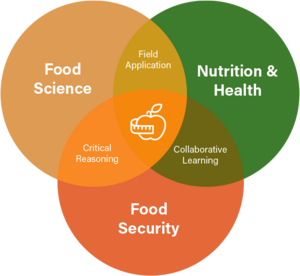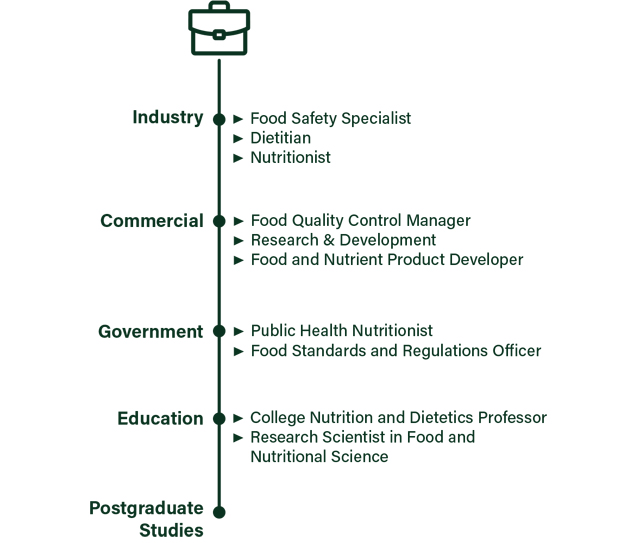 Food & Nutritional Science is a vital field studying food and its impact on human health and well-being. Bridging science and society, it explores interactions between food, nutrition, health, and the environment. Contributing to advancements in public health, food technology, and sustainability, this field offers a dynamic platform for addressing global challenges and shaping our food and health future.
Food & Nutritional Science is a vital field studying food and its impact on human health and well-being. Bridging science and society, it explores interactions between food, nutrition, health, and the environment. Contributing to advancements in public health, food technology, and sustainability, this field offers a dynamic platform for addressing global challenges and shaping our food and health future.
Studying Food & Nutritional Science
This Major offers students an understanding of theoretical and practical aspects of food science, technology, and nutrition concerning human health, as well as the connection between food and various factors. Students will cultivate transferable skills such as experimental design, interdisciplinary collaboration, analytical thinking, and problem-solving for addressing complex issues.
Major Highlights
- A progressive programme delving into a wide array of disciplines, including:
- Genetics, sustainability, security, chemistry, microbiology, safety, product development, commodities, toxicology, nutraceuticals, physiology, diet, nutrition, public health, etc.
- A curriculum meeting the requirements for higher degree in MPhil and PhD and or the taught Master of Science degrees in the fields of:
- Food industry: Management and Marketing
- Food Safety and Toxicology

Curriculum
| Major in Food & Nutritional Science (96 credits) |
| > | Bestows students with the liberty to study other disciplines, enriching their educational experience |
Career Prospects
Our graduates capitalise on Hong Kong’s robust food industry, securing positions in local and multinational organisations, government departments, and laboratories. They excel as nutritionists, quality assurance officers, and research and development officers. Furthermore, pursuing advanced degrees enables these graduates to attain professional dietitian status.
Hear from Our Student

Avis CHEUNG
BSc graduate (major in Food and Nutritional Science)
‘This comprehensive curriculum has provided me with invaluable insights and practical skills that support my career aspirations. Beyond traditional lectures, this Major places a strong emphasis on hands-on learning through oral presentations, collaborative group projects, and laboratory sessions, all of which have significantly enhanced my communication and presentation skills—essential qualities for pursuing a career in the food industry or as a dietitian. ‘

Chan Ho Ting Tiffannie
BSc Graduate (Major in Food & Nutritional Science)
'The Food and Nutritional Science Major has provided me with a comprehensive understanding of human nutrition and food security, essential for shaping my career pathway. Academic knowledge was imparted through diverse activities orchestrated by the teaching team. Beyond traditional lectures, interactive laboratory sessions allowed students to explore diverse topics, including food chemistry. This helped me acquire technical skills and enhanced my communication and presentation abilities—both vital in the workplace. Through collaborative group presentations and debates, I developed confidence in public speaking and learned to articulate my ideas logically.'
(Video) Introduction of the Major


